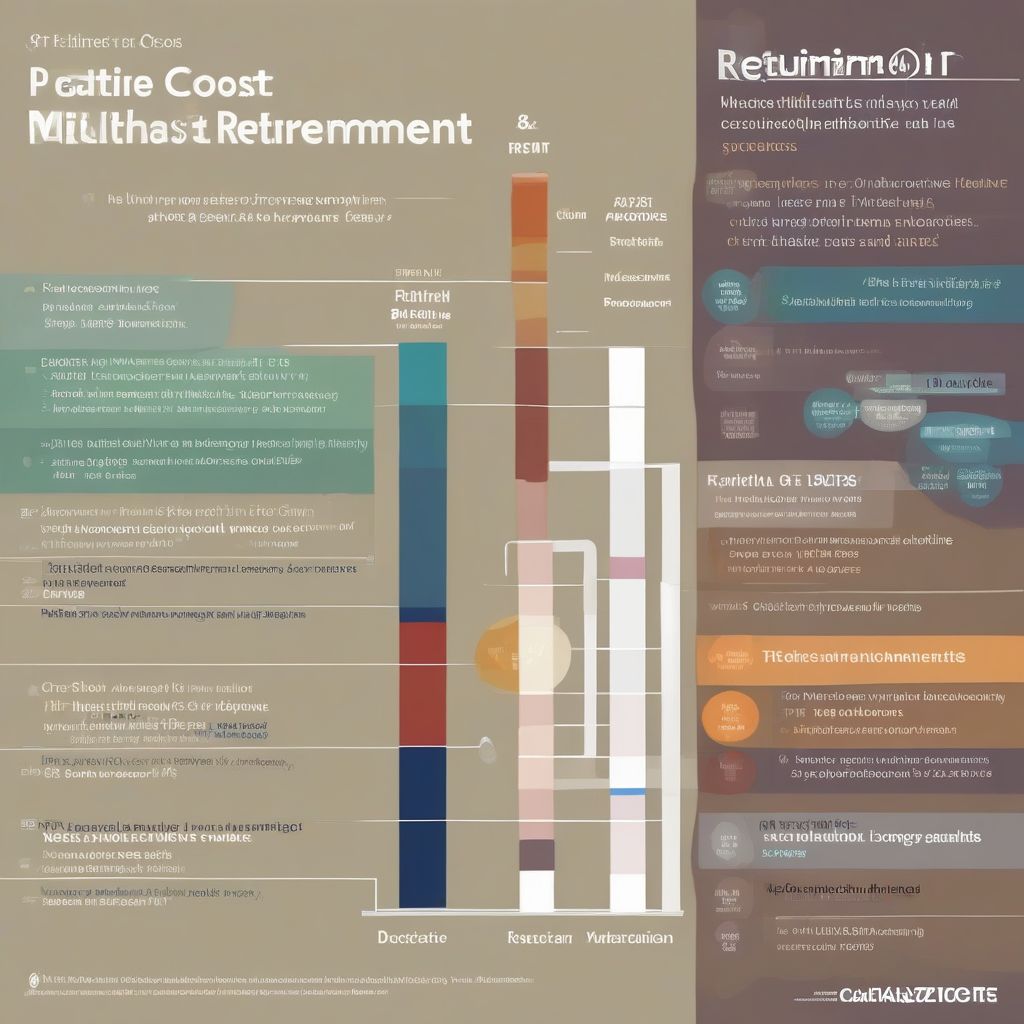Imagine this: you’re finally retired, enjoying your morning coffee on the porch swing, free from the daily grind. You’re excited to travel, pursue hobbies, and spend quality time with loved ones. But then, an unexpected medical bill arrives, casting a shadow over your sunny retirement vision.
This scenario, unfortunately, plays out too often. Many pre-retirees underestimate the significant chunk of their retirement funds that healthcare costs can consume. But don’t worry, this isn’t meant to scare you! With a bit of proactive planning and savvy budgeting, you can enjoy those golden years with peace of mind, knowing you’re financially prepared for whatever health hurdles come your way.
Understanding the Landscape: Why Healthcare Costs Loom Large in Retirement
First, let’s acknowledge the elephant in the room—healthcare costs are a moving target, and they tend to move upwards. As we age, our bodies require more care, meaning more doctor’s visits, potential hospital stays, and often, long-term care. Adding fuel to the fire, inflation in healthcare often outpaces general inflation, making it a budget buster if not accounted for properly.
Cracking the Code: Strategies for Effective Healthcare Cost Budgeting
Now, let’s dive into the practical steps you can take to prepare:
1. Estimate Your Future Healthcare Needs
This step can feel a bit like gazing into a crystal ball, but it’s crucial. Factors to consider:
- Your current health status: Existing conditions or family history can offer clues about future needs.
- Life expectancy: Plan for a long life – you might be surprised how long!
- Medicare coverage: Understand what Medicare does (and doesn’t) cover.
- Long-term care needs: Factor in potential costs for assisted living or in-home care.
2. Utilize Online Calculators and Resources
Thankfully, you don’t have to crunch numbers alone. Numerous reputable online calculators can help estimate your retirement healthcare expenses.
- Fidelity Retirement Calculator: This tool factors in inflation and provides personalized projections.
- AARP Health Care Costs Calculator: Tailored specifically for retirees, this resource offers valuable insights.
 Retirement Planning Chart
Retirement Planning Chart
3. Explore Health Savings Accounts (HSAs)
If you’re eligible, HSAs offer a triple tax advantage—contributions are tax-deductible, earnings grow tax-free, and withdrawals for qualified medical expenses are also tax-free.
4. Maximize Retirement Savings Plans
Contribute the maximum amount to your 401(k) or IRA to build a robust retirement nest egg. Consider a Roth IRA for tax-free withdrawals in retirement, including those for medical expenses.
5. Investigate Long-Term Care Insurance
While it adds an extra cost, long-term care insurance can provide significant financial protection if you need extended care services in the future.
6. Stay Informed and Adapt
Healthcare policies and costs evolve, so make it a habit to stay updated. Review your budget annually and make adjustments as needed.
Beyond the Numbers: Tips for Healthy Aging on a Budget
Remember, managing healthcare costs isn’t just about financial planning; it’s also about prioritizing your well-being.
- Embrace a Healthy Lifestyle: Regular exercise, a balanced diet, and stress management can go a long way in preventing costly health issues.
- Preventive Care is Key: Don’t skip those annual checkups! Detecting problems early is often more affordable in the long run.
- Explore Senior Discounts: Many pharmacies, healthcare providers, and fitness centers offer discounts for seniors.
Conclusion: Your Healthiest Retirement Starts Now
Planning for healthcare costs in retirement might seem daunting initially, but it’s a gift you give your future self. By understanding the potential expenses, utilizing available resources, and prioritizing your health, you can confidently approach your golden years, knowing you’re financially and physically prepared for whatever comes your way.
Now, it’s your turn! Start planning for a healthy and financially secure retirement today.
[amazon bestseller=”Retirement Planning”]
